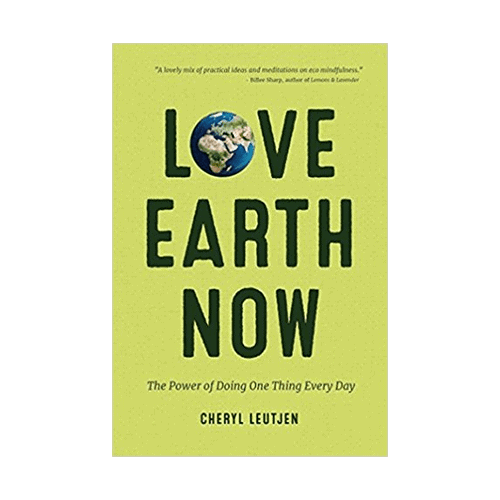The UN Intergovernmental Panel on Climate Change (IPCC)’s meeting in Switzerland on 20th March 2023 highlighted the urgent need for climate action in order to stick to the Paris Agreement goal of limiting global warming to 1.5°c. This requires a global emission peak by 2025, a 43% emission reduction by 2030, 65% by 2035, and reaching net-zero by 2050.
The global climate temperature has risen by 1.1°c since the beginning of the Industrial Revolution¹ and continues to rise due to increasing amounts of carbon dioxide and greenhouse gas emissions, as well as unequal and unsustainable energy and land use. Climbing global temperatures increase the risk of extreme weather events, food and water insecurity,
As Secretary-General António Guterres stated in his address on Monday “the climate time bomb is ticking”, and the longer we wait for extreme action to be taken the more extreme the effects on our weather systems, ecosystems, livelihoods, economies, and health become.
The release of the 6th Assessment report marked the end of an eight year long undertaking by the world’s leading climate change scientists, and the findings are fairly unsettling. The main findings can be summarised by these 10 key points²:
- Human induced global warming of 1.1°C has spurred changes to the Earth’s climate that are unprecedented in recent human history.
- Climate impacts on people and ecosystems are more widespread and severe than expected, and future risks will escalate rapidly with every fraction of a degree of warming.
- Adaptation measures can effectively build resilience, but more finance is needed to scale solutions.
- Some climate impacts are already so severe they cannot be adapted to, leading to losses and damages.
- Global greenhouse gas emissions must peak before 2025 in 1.5°C-aligned pathways.
- The world must rapidly shift away from burning fossil fuels — the number one cause of the climate crisis.
- We also need urgent, systemwide transformations to secure a net-zero, climate-resilient future.
- Carbon removal is now essential to limit global temperature rise to 1.5 degrees C.
- Climate finance for both mitigation and adaptation must increase dramatically this decade.
- Climate change — as well as our collective efforts to adapt to and mitigate it — will exacerbate inequality should we fail to ensure a just transition.
This report also highlights the ongoing climate injustice as “those who have contributed least to climate change are being disproportionately affected³, says report author Aditi Mukherji. “Almost half of the world’s population lives in regions that are highly vulnerable to climate change. In the last decade, deaths from floods, droughts and storms were 15 times higher in highly vulnerable regions,“ she added.
However, despite the unsettling findings, this report also discusses solutions to these climate issues and maintains an air of optimism. Guterres describes the IPCC report as a “how-to guide to diffuse the climate time bomb”, he continues, “It is a survival guide for humanity. As it shows, the 1.5 degree limit is achievable, but it will take a quantum leap in climate action”.
How can this be achieved? The report findings point to the solution being climate resilient development. This means reducing exposure and vulnerability to climate hazards, cutting back greenhouse gas emissions and conserving biodiversity are given the highest priorities in everyday decision-making and policies on all aspects of society including energy, industry, health, water, food, urban development, housing and transport⁴.
It is also a highly contextual form of development as it is constructed around our diverse values, worldviews and knowledge, including scientific knowledge, Indigenous Knowledge and local knowledge⁵, thus allowing locally appropriate, socially acceptable solutions. For example the necessary response for wealthier, more developed countries that produce large amounts of CO2 emissions would not be the same for a smaller, developing island nation; the developed nation might need more focus on mitigation whilst the developing nation could benefit from a more ‘prevention rather than cure’ response to climate change. Climate resilient development is not a ‘one size fits all’ process.
This report has produced some worrying statistics and statements, however not all is lost. It is largely the responsibility of policymakers to initiate change, but we as the public can also use our voice to push for it. We must continue to highlight the dangers we face and do whatever is in our power to lead by example.
¹ IPCC Press Release, Urgent climate action can secure a liveable future for all. Available at: https://www.ipcc.ch/site/assets/uploads/2023/03/IPCC_AR6_SYR_PressRelease_en.pdf Accessed: 22/03/23
² IPCC Press Release, Urgent climate action can secure a liveable future for all. Available at: https://www.ipcc.ch/site/assets/uploads/2023/03/IPCC_AR6_SYR_PressRelease_en.pdf Accessed: 22/03/23
³ Boehm, S. & Schumer, C. 10 Big Findings from the IPCC Report on Climate Change. World Resources Institute. Available at: https://www.wri.org/insights/2023-ipcc-ar6-synthesis-report-climate-change-findings
Accessed: 22/03/23
⁴ IPCC Press Release, Urgent climate action can secure a liveable future for all. Available at: https://www.ipcc.ch/site/assets/uploads/2023/03/IPCC_AR6_SYR_PressRelease_en.pdf Accessed: 22/03/23
⁵IPCC Press Release, Urgent climate action can secure a liveable future for all. Available at: https://www.ipcc.ch/site/assets/uploads/2023/03/IPCC_AR6_SYR_PressRelease_en.pdf Accessed: 22/03/23






